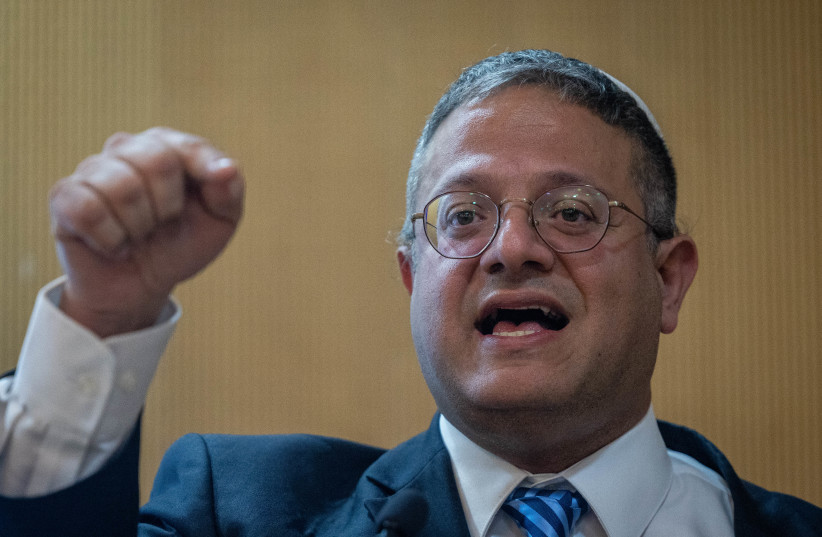National Security Minister Itamar Ben-Gvir is convinced that if he takes a harder line on enforcement in response to serious crime, public protests, and even terror attacks, then these problems will be solved. But the truth is that this “firm hand” approach lacks any scientific basis.
It may seem logical to think that taking tougher action will increase deterrence and eventually make things better, but surprisingly (and contrary to the minister’s view) studies show that more hardline and aggressive policies lead, in most cases, to a rise in serious crime, to more violent demonstrations, and to increased terror attacks.
Ben-Gvir’s assumption is that there is a linear relation between the amount of force and harshness applied in enforcement, and the achievement of desired outcomes in the policing of serious crime, public protests, and terror. He claims that the main problem is that so far, not enough force has been used. However, research studies from the last decade show that the most effective way to reduce crime is to focus resources, enforcement, and treatment on places characterized by serious crime and on the hardcore population of lawbreakers.
The reality of crime in Israel
According to data, only 5% of streets in cities account for around 50% of crime, and only a small percentage of lawbreakers are responsible for the majority of serious offenses. Identifying entire regions, towns or communities as criminal and as needing tougher enforcement is ineffective and wrong. Instead, the police should be focused as much as possible on fighting serious crime, causing as little damage as possible, and gaining results that prevent criminality.
Calling for harsher treatment of all demonstrators, or entire Palestinian villages that were home to terrorists, or the entire Arab community in Israel – which itself is suffering greatly from the effects of serious crime – will only lead to a more serious breakdown of relations between the police and society.

IT IS worth examining the flip side of this scenario. If the police treat citizens with respect and fairness, it will not only gain trust and support from those communities it serves but also, (and no less importantly) it will be more effective at preventing crime within them.
This is one of the conclusions of a study carried out recently in three large cities in the United States, in which police officers were trained to act respectfully toward citizens in crime hotspots. The researchers found that not only did the public’s evaluation of the police improve, but that crime in those locations fell, relative to other hotspots in which officers did not receive the same training.
Similarly, recent studies have shown that militaristic policing of demonstrators, and treating them as “enemies of the state,” only results in much greater violence. The findings are the same when it comes to serious crime and terror: Researchers have clearly proved that using indiscriminate, unchecked, oppressive force leads to greater support for terror and to more terror incidents in the long term.
Likewise, when entire communities are targeted and uncontrolled force is used against them, the result is an increase of close to 20% in levels of alienation from the state in general, and the police in particular, but no reduction in crime.
It’s not about being tougher. It’s about being smarter. The time has come to recognize that relying on gut feeling and intuition is liable to lead to disaster for policing and society in Israel. Using unchecked force in policing is not the answer to serious crime, public protests, or terror.
The answer is to focus high-intensity policing on a small number of locations and people who are responsible for the biggest problems. It’s not even necessary for the police to try and show how tough it can be. It just needs to show that it can perform its tasks efficiently within the norms of democratic policing that respects citizens.
We call on the national security minister to adopt this approach, which scientific research and field data show can solve problems more effectively instead of making them worse.
Prof. David Weisburd is a recipient of the Israel Prize and Stockholm Prize in Criminology, and Walter E. Meyer Professor Emeritus of Law and Criminal Justice at the Hebrew University Institute of Criminology.
Prof. Badi Hasisi is head of the Hebrew University Institute of Criminology.
